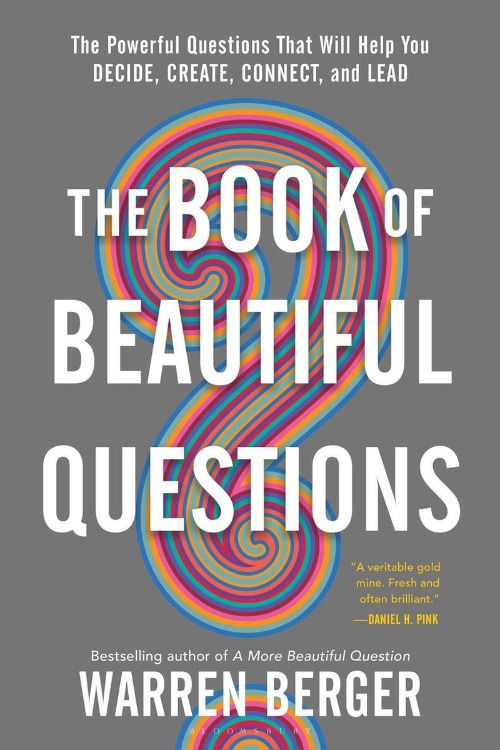Post #1 | My "Big Question"
- Sarah

- Jan 21, 2023
- 5 min read
Updated: Feb 18, 2023
In an ever-changing world of technology, education and teachers are faced with the biggest challenge yet.
How can we effectively integrate AI (and related technology) in education to promote collaboration and skill development for students?

Recently in my home, there has been a lot of discussion around the new artificial intelligence "bot", ChatGPT. After experimenting with the program, it has brought about many questions about our futures - our careers, today's children's futures, education systems, and generally, life as "we know it". I always assumed robots were the way of the future, but I didn't expect "it" to occur so soon - and be so readily accessible when it emerged!
I have been an elementary teacher for almost ten years now, and this has certainly given me a lot to ponder. When my job is to ensure students can spell, write complete sentences, solve mathematical problems and think critically, how do I possibly continue fulfilling these responsibilities with these new tools at their finger tips? Kids seem to pick up on technology these days quicker than I can. When they realize that they can ask the AI bot to "do their job", what does my job look like then? What does education look like? It actually caused me to wonder what I would do next if teachers were no longer needed!
I was sent this education-related TikTok video (@gibsonishere) from a colleague who I have been engaging in a lot of collaborative dialogue with around the topic. The teacher in the video addresses AI as the "downfall of critical thinking" and instead re-frames the question and views AI as exciting tool and experience worthy of engaging in with her students. Think smarter, not harder. Instead of policing a tool in schools that may potentially change our world permanently, embrace it and learn to co-exist. There is still a role for teachers, we just have to teach differently. After watching the TikTok video, I have become obsessed with reflecting on my current practice - re-framing the way I think about structuring lessons, teach objectives and outcomes, reporting and continue teaching in a world of AI. Have a listen and I would love to hear your reactions!
When determining my "Big Question", I grappled with the fact that while there may be emerging articles on the topic, there may not be peer-reviewed studies yet. Is this a valid question if there is limited research and experience with it? What is my fear with this question? Coincidentally, I was gifted "The Book of Beautiful Questions" by Warren Berger not long ago, so I flipped through for some guidance around determining a worthy question to reflect on for this assignment.

Warren is a self-proclaimed "questionologist". In my initial skimming, a few ideas resonated with me (and connected to my Big Idea) as I contemplated my Big Question:
Fear is one of the five enemies of questioning. He poses a thought, "will asking questions make it seem as if I don't know how to do my job?". I wondered, will this question make me seem like an incompetent, "stuck-in-their-ways" teacher? Why am I afraid to reflect on this question? Am I nervous about my career trajectory or will I be judged differently?
"How might we foster a questioning habit?" - to really have an impact, you must make questioning a part of your life and your daily routine. It's easy to post questions during a structured time, but when you aren't forced and aren't expecting an answer, it's harder to do. Will this question cause me to reflect regularly?
Framing questions is important. The fundamental "why" question and imaginative "what if" questions can be the most effective. But "naive" questions can be powerful to bring about change. I am certainly naive on this topic, and don't feel as though I could ask why (and harness any background knowledge) or what if (and pose an additional idea yet). My big question would seem naive, and I don't need to expect to find an answer on Google, or better yet, the AI bot!
"Why is questioning now more important than ever?" Berger explains that questioning skills are a 21st century survival skill. This particularly resonated with me and my particular Big Idea , because people need to "seek to find" from AI (as of now). Reflecting on this topic may impact me more than I thought!
How can questioning bring us together? Throughout the pandemic, it became glaringly obvious that human connection is critical. However, Berger explains that answers and certainties can divide people. It is the questions and listening that can cause people to collaborate and connect. I realized that collaboration may be a critical area to reflect on in terms of AI/ technology in the world of education. If the teacher is no longer viewed as the keeper of knowledge (which I already felt I was not!), how does this shift the perspective of students? Can it be a tool for collaboration?
"Why should this be my problem?" Berger suggest reflecting on the question: will I look forward to thinking about this topic? Will I want to commit to this question for the remainder of the course? Is this something I can apply my life/education/career to? Focusing on the "why" when deciding on a question forces on to think about it for a while. I realized I have actually been ruminating on this Big Idea for a week now as I complete my report cards! It has stuck with me through all of that reporting, and taken shape into my first blog post- it must be important to me.
All of this initial reflection, incubation, and intentional reading has shaped my Big Question that I am going to reflect on and explore throughout my learning in PME 811: Innovation in Teaching and Learning. There was just one last experiment I had to run before accepting it - ask the AI Bot, ChatGPT, of course! Here's what came up based on my personal wonderings and interests that I shared with it:

I'm not sure how to feel! This question is "bang on". I somewhat used the "backwards design" that was discussed in the TikTok video - I shared my ideas, my wonderings, my topic, generated an accurate response, and now I get to break it down and reflect on the aspects of this carefully crafted Big Question.
Join me through this ever-evolving learning curve that I am about to embark on as I explore the role AI and related technology has on collaboration and skill development in education!
Reference
Berger, W. (2018). The Book of Beautiful Questions: The Powerful Questions That Will Help You Decide, Create, Connect, and Lead. Bloomsbury Publishing.









Hi Sarah, I recently had this discussion with a past School District trustee and I had not heard about this yet. I don't think my own children have heard about it either but I can see that it is only a matter of time. My biggest concerns is the plethora of information on the internet that ChatGPT might be drawing from to formulate its answers. Are they fact-checked? I am trying so hard to get my twelve year old to check the sources of what she is reading/watching on the internet that this is very concerning to me that is spits out an answer with no references attached.
I know my son has used an app to help him work…
Hi Sarah, What an interesting topic! I had not heard about ChatGPT so I am excited to learn about it through your blog! I agree that children seem to pick up technology a lot faster than we do, so if we can use AI to our advantage why not? I can appreciate a general fear, and I think there should be some concern around AI. Is there a chance that students may use it entirely to do their work/homework? How can we ensure students are learning and becoming critical thinkers? I think these are all valid and important questions!
Looking forward to your coming posts!
Sarah, I love this topic! I'm so excited to read your blog and think about AI and its impact on education. I had a lot of interesting conversations with my family members over Christmas break and great insight into my nieces' and nephews' hopes for ways that ChatGPT will be able to help them with their homework. Your connections to Warren Berger's work seem so important here, too - a fear of questioning is so dangerous. We know this from growth mindset work, too, right? Needing to look like we have all the answers instead of being comfortable with the process of learning actually means we learn less!
Can't wait to see future posts!